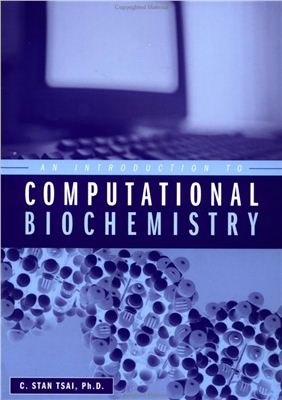John Wiley & Sons, Inc., 2002, - 371 pages.
This book delves into practical solutions to biochemical problems with software programs and interactive bioinformatics found on the World Wide Web. After the introduction in Chapter 1, the concept of biochemical data analysis and management is described in 2nd Chapter. The interactions between biochemists and computers are the topics of Chapter 3 (Inteet resources) and Chapter 4 (computer graphics). Computational applications in structural biochemistry are described in Chapter 5 (biochemical compounds) and then in Chapters 14 and 15 (molecular modeling). Dynamic biochemistry is treated in Chapter 6 (biomolecular interactions), Chapter 7 (enzyme kinetics), and Chapter 8 (metabolic simulation). Information biochemistry that overlaps bioinformatics and utilizes the Inteet resources extensively is discussed in Chapters 9 and 10 (genomics), Chapters 11 and 12 (proteomics), and Chapter 13 (phylogenetic analysis).
This textbook is the introductory courseware at an entry level to teach students biochemical principles as well as the skill of using application programs for acquisition, analysis, and management of biochemical data with microcomputers. The book is written for end users, not for programmers. The objective is to raise the students’ awareness of the applicability of microcomputers in biochemistry and to increase their interest in the subject matter. The target audiences are undergraduate chemistry, biochemistry, biomedical sciences, molecular biology, and biotechnology students or new graduate students of the above-mentioned fields.
This book delves into practical solutions to biochemical problems with software programs and interactive bioinformatics found on the World Wide Web. After the introduction in Chapter 1, the concept of biochemical data analysis and management is described in 2nd Chapter. The interactions between biochemists and computers are the topics of Chapter 3 (Inteet resources) and Chapter 4 (computer graphics). Computational applications in structural biochemistry are described in Chapter 5 (biochemical compounds) and then in Chapters 14 and 15 (molecular modeling). Dynamic biochemistry is treated in Chapter 6 (biomolecular interactions), Chapter 7 (enzyme kinetics), and Chapter 8 (metabolic simulation). Information biochemistry that overlaps bioinformatics and utilizes the Inteet resources extensively is discussed in Chapters 9 and 10 (genomics), Chapters 11 and 12 (proteomics), and Chapter 13 (phylogenetic analysis).
This textbook is the introductory courseware at an entry level to teach students biochemical principles as well as the skill of using application programs for acquisition, analysis, and management of biochemical data with microcomputers. The book is written for end users, not for programmers. The objective is to raise the students’ awareness of the applicability of microcomputers in biochemistry and to increase their interest in the subject matter. The target audiences are undergraduate chemistry, biochemistry, biomedical sciences, molecular biology, and biotechnology students or new graduate students of the above-mentioned fields.

